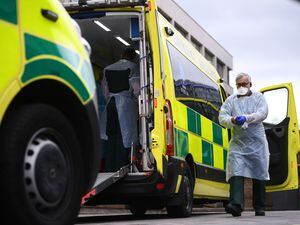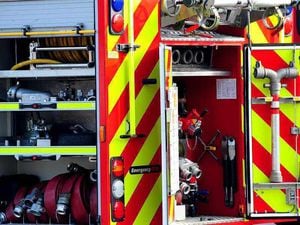How our world has changed in five frightening months
The Covid-19 pandemic has spread across the globe at a terrifying rate in just a matter of months. Here are the key dates that mark the progress of the disease.

November 2019:The first case of coronavirus is identified in the city of Wuhan in the province of Hubei, China. It is believed the disease may have stemmed from a “wet” market, where living wild animals are sold for meat.
January 25: British authorities begin to get nervous about the threat, and health officials team up with Border Force agents to track down 2,000 people who have recently flown to the UK from Hubei province.
January 29: Britons returning from coronavirus-hit Wuhan in China are told they will be put in quarantine for 14 days.
January 30: The coronavirus outbreak is declared an international public health emergency by the World Health Organisation.
January 31: Two members of the same family test positive for coronavirus in England and are treated at the Newcastle upon Tyne Hospitals NHS Foundation Trust. More than 80 Britons are evacuated from Wuhan by the Foreign and Commonwealth Office and are placed in quarantine at Arrowe Park Hospital on the Wirral.
February 4: The Diamond Princess cruise ship is quarantined off the coast of Japan with 3,700 people on board including more than 100 British citizens due to a coronavirus outbreak. Britons in mainland China are told to leave if they can by the Foreign Office.
February 5: Hospitals are told to create emergency assessment pods for coronavirus. A third person in the UK tests positive for coronavirus after contracting it in Singapore and is treated at Guy’s and St Thomas’s Hospital in London.
February 9: A final UK Government chartered flight bringing around 150 British nationals back from coronavirus-hit Wuhan touches down and the passengers are quarantined at a facility in Milton Keynes.
February 10: The Government declares coronavirus a “serious and imminent threat to public health” and gives itself powers to forcibly quarantine people. The number of cases in the UK reaches eight
March 5: UK cases reach 90, as the first patient dies in the UK. The patient, in her 70s, died in the Royal Berkshire Hospital in Reading. A second person, a man in his 80s, dies the following day.
March 13: European countries including Austria, Portugal, France, Denmark and Norway begin to ban public gatherings and close schools as the death toll mounts. The first Coronavirus patient dies in Scotland. Top-level football competitions in England, Scotland, Wales and Northern Ireland are suspended.
March 16: A patient in their 60s becomes the first death in Wales. Scientists at Imperial College warn the Government that around 250,000 people will die in Britain unless stricter measures are adopted to protect the population.
March 17: Parliament stops all non-essential public access. Public worship suspended by the Church of England. Chancellor Rishi Sunak unveils a £330bn package to help businesses. Schools, nurseries and colleges are told they must close their doors from the end of the day on 20 March until further notice.
March 20: Boris Johnson orders pubs and restaurants across the country to close. Rishi Sunak announces a multi-billion pound package of measures to prevent mass layoffs and improve the welfare system.
March 23: UK public is told that from this evening they will only be allowed to leave their homes for limited reasons, including shopping for food, exercise once per day, medical need and travelling for work when absolutely necessary. All shops selling non-essential goods are told to close, gatherings of more than two people in public are banned, all events including weddings but excluding funerals are cancelled.
March 24: A new scheme is launched to recruit volunteers to help the NHS: initially the target is 250,000 but more than half a million apply in just two days. A new field hospital called the Nightingale Hospital with a capacity of 4,000 is being prepared at the EXcel Centre.
March 25: The Prince of Wales tests positive for coronavirus but is displaying only “mild symptoms”.
March 26: A support package for the self-employed is announced: covering an average of 80 per cent of earnings over the last three years.
March 27: Boris Johnson and Health Secretary Matt Hancock test positive for Covid-19, while chief medical officer Chris Whitty says he has symptoms of the disease and is self-isolating.
March 28: UK deaths from coronavirus reaches over 1,000. The number of infections reaches an estimated 600,000 world-wide.





